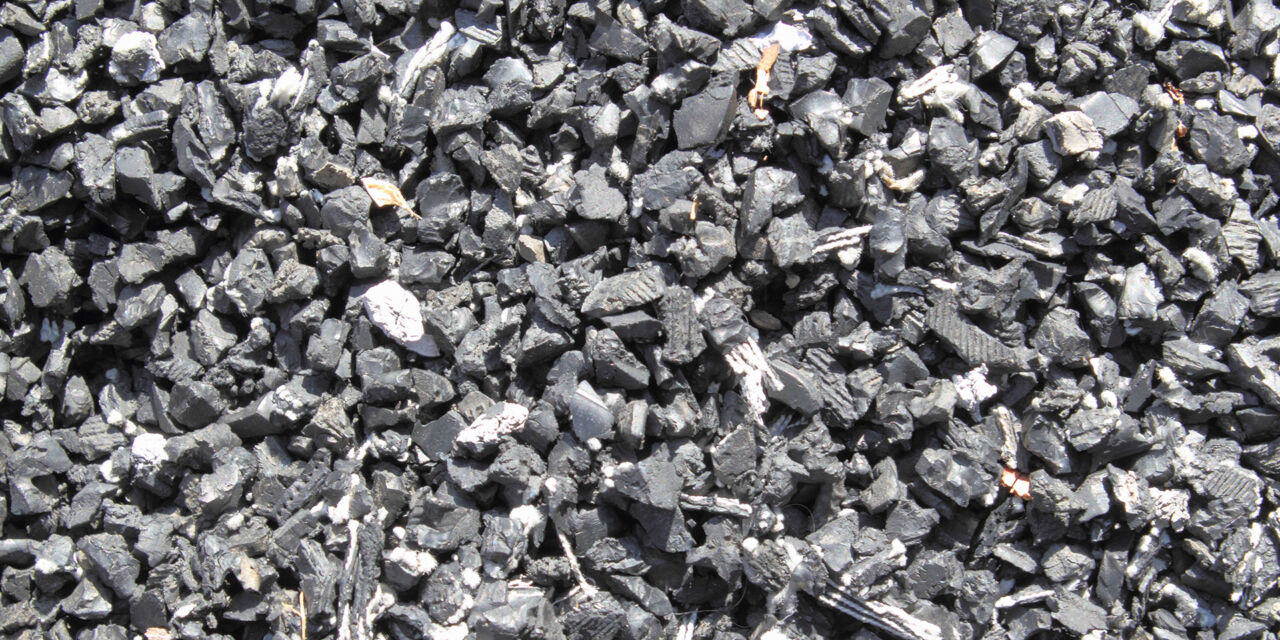- Member
- RubberGreen
From airplane tires to railroad ties, the connection may seem incongruous... Yet, RubberGreen manages to link air and land!
After spending five years leading a tire recycling company, Olivier Prud’homme, fascinated by the material and driven by a desire to start a business in his native region, founded RubberGreen in 2019.
- Ecosystem
-
- Renewable Energy
- Success criteria
-
- Production or business model transformation
- Sales revenue inscrease
- Disruptive innovation
The Frameries site was a strategic choice not only due to local ties but also its proximity to Bridgestone Aircraft, a supplier of raw materials for the nascent company: aircraft tire retreading waste.
After processing, this waste has a plethora of possible applications, notably for rail transport and construction, such as soles placed under railroad ballast or soundproofing materials for buildings.
Circular Economy as the Company’s DNA
However, unlike competitors in the rubber recycling sector, RubberGreen has developed a process capable of transforming the recycled material to have the same mechanical properties as the original rubber.
From its inception, the company sought to develop a transformation process other than the addition of a polyurethane binder, as this “glue” reduces the traction capabilities of the rubber.
Thanks to its devulcanization process – RubberGreenCycle – the company is pioneering tire recycling. RubberGreen is the only company using this process, thus producing “pure rubber” applications. Waste becomes raw material. Everything is transformed. Nothing is lost. No waste leaves the company. A true circular economy logic!
Collaboration and Financial Support to Bring the WholeTrack Project to Life
This research and development project was made possible thanks to an initiative by the MecaTech Cluster: the WholeTrack project. The aim was to bring together several companies to develop technical solutions to reduce the number of interventions on railway tracks.
Despite the administrative burden of such a project, it led to the development of an application used in the railway sector, still the main growth driver for RubberGreen and its demonstrator product.
According to Olivier Prud’homme, MecaTech Cluster is also crucial in financial terms: “The labeling of our investment projects is very attractive. T
he WholeTrack project was a significant growth factor, and this financial security allowed us to innovate.” The company regularly applies for investment grants, and these several millions are redistributed between equipment and R&D. “The ERDF amplifies the innovation grant rate and facilitates financing operations,” adds the CEO.
With double-digit growth, despite unfavorable conditions or a fire ravaging its buildings, RubberGreen is just at the beginning of its market conquest, as its products are unique, diverse, and promising. Its railroad tie soles are shipped worldwide, sometimes through intermediaries.
The company is currently focusing on Europe and the MENA region, while also securing direct contracts with India. Besides the railway sector, its high-value-added applications are also extremely interesting for construction, particularly roofing, and the automotive sector.
Its major challenges are currently to develop sales and build a strong management team to handle a turnover growth of 15 to 20 million euros by 2025. With such a potential market and multiple development ideas, RubberGreen is one of the most promising companies in the Hainaut region.
Pôle MecaTech : Turning Innovative Ideas into Reality
Just as you would consult a financial institution and a good architect for your personal projects, innovative manufacturing companies like RubberGreen turn to the MecaTech Cluster to build their innovation projects, partner with high-value-added entities, and secure the best possible funding.

